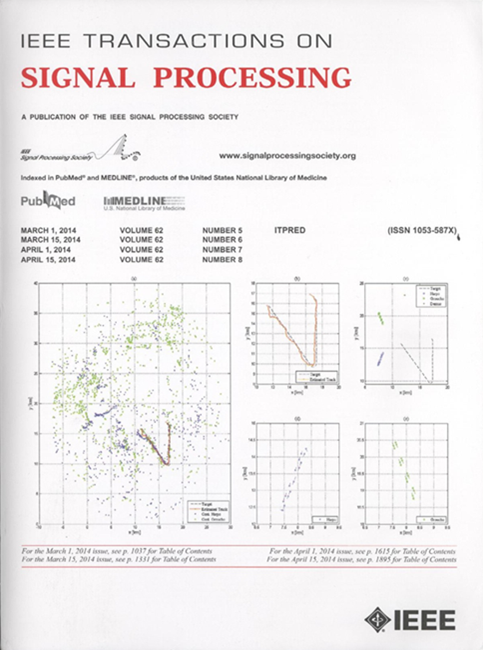约束随机递推动量连续凸逼近
IF 5.8
2区 工程技术
Q1 ENGINEERING, ELECTRICAL & ELECTRONIC
引用次数: 0
摘要
我们考虑具有非凸函数约束的随机优化问题,例如在轨迹生成、稀疏逼近和鲁棒分类中出现的问题。为此,我们提出了一种基于递归动量的加速连续凸逼近(SCA)算法。在每次迭代中,该算法需要构造随机目标和约束函数的凸代理,并求解由此产生的凸优化问题。采用递归更新规则跟踪随机目标函数的梯度,减小了方差,加快了算法收敛速度。证明的一个关键成分是标准Mangasarian-Fromowitz约束限定的一个新的参数化版本,它允许我们对对偶变量进行定界,从而获得迭代接近一个$\epsilon$-平稳点的速率的问题相关界。值得注意的是,该算法实现了近乎最优的随机一阶(SFO)复杂度,其自适应步长与解决无约束问题的最先进随机优化算法所实现的步长密切匹配。以一个避障轨迹优化问题为例,说明了该算法的性能优于现有的轨迹优化算法。该算法的性能也可与应用于二元分类问题的专门稀疏分类算法相媲美。本文章由计算机程序翻译,如有差异,请以英文原文为准。
Constrained Stochastic Recursive Momentum Successive Convex Approximation
We consider stochastic optimization problems with non-convex functional constraints, such as those arising in trajectory generation, sparse approximation, and robust classification. To this end, we put forth a recursive momentum-based accelerated successive convex approximation (SCA) algorithm. At each iteration, the proposed algorithm entails constructing convex surrogates of the stochastic objective and the constraint functions, and solving the resulting convex optimization problem. A recursive update rule is employed to track the gradient of the stochastic objective function, which contributes to variance reduction and hence accelerates the algorithm convergence. A key ingredient of the proof is a new parameterized version of the standard Mangasarian-Fromowitz Constraints Qualification, that allows us to bound the dual variables and hence obtain problem-dependent bounds on the rate at which the iterates approach an $\epsilon$
求助全文
通过发布文献求助,成功后即可免费获取论文全文。
去求助
来源期刊

IEEE Transactions on Signal Processing
工程技术-工程:电子与电气
CiteScore
11.20
自引率
9.30%
发文量
310
审稿时长
3.0 months
期刊介绍:
The IEEE Transactions on Signal Processing covers novel theory, algorithms, performance analyses and applications of techniques for the processing, understanding, learning, retrieval, mining, and extraction of information from signals. The term “signal” includes, among others, audio, video, speech, image, communication, geophysical, sonar, radar, medical and musical signals. Examples of topics of interest include, but are not limited to, information processing and the theory and application of filtering, coding, transmitting, estimating, detecting, analyzing, recognizing, synthesizing, recording, and reproducing signals.
 求助内容:
求助内容: 应助结果提醒方式:
应助结果提醒方式:


